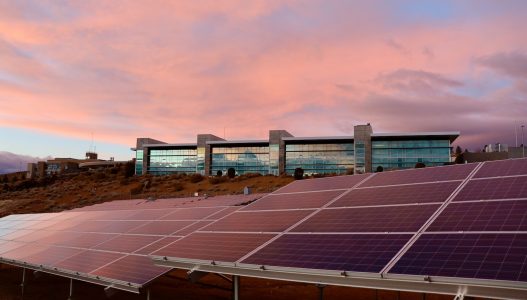
Solar Panels
Solar panels convert clean renewable energy from the sun into electricity that can power your business. This energy can also be stored to use when the sun isn’t shining. This helps reduce your carbon footprint by reducing your dependence on fossil fuels and the greenhouse gasses that are produced as a result.
Using solar energy reduces your emissions by replacing fossil fuel generated power with a cleaner alternative. However, this doesn’t mean that solar power doesn’t leave a carbon footprint at all. Creating solar panels is energy intensive. One ton of silicon requires as much energy to create as 500,000 tons of coal.
Energy Storage
Many corporations have ambitious targets to achieve a 100% clean energy supply, and energy storage is the ideal technology to unlock that goal. In fact, Google recently installed Fluence’s Gridstack energy storage systems at its hyperscale data centers to ensure its 24/7 zero-emission power needs and advance corporate sustainability goals.
Energy storage can also benefit remote communities by providing backup electricity, reducing demand charges and enabling microgrids. And pumped storage hydropower is already being used at the utility-scale to generate power from water that’s stored up behind a dam and then released.
Electric Vehicles
Whether your business is motivated by environmental regulations or self-imposed goals, embracing electric vehicles (EVs) can reduce carbon emissions from your fleet. Electric motors generate no tailpipe emissions and require significantly less maintenance than internal combustion engine cars and trucks. In addition, EV charging stations can be used at work to enable your fleet to start each day fully charged, increasing productivity.

A branding strategist and copywriter with a sharp eye for visual storytelling, Sophie focuses on merging design aesthetics with clear messaging to drive engagement and brand loyalty across digital platforms.

